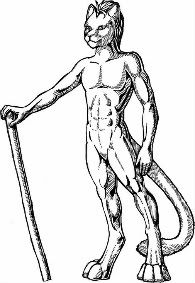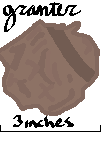~*~ Design Your Own Fantasy Creature Contest ~*~

Post your entry in this thread by the 22nd of August in the following format. Please, use complete sentences since we are a literate guild. 4laugh
[b]Name: [/b]
[b]Appearance: [/b]
[b]Habitat: [/b]
[b]Behaviour: [/b]
[b]Strengths/Abilities: [/b]
[b]Weaknesses: [/b]
[b]Allies: [/b]
[b]Enemies: [/b]
[b]History: [/b]
On the 22nd of August I will put up a poll so that all of the elves can vote for their favourite entry.
The poll will close on the 29th of August, so the day afterwards the winners will be announced! cool
Prizes
Every elf that enters earns 5 points.
The winner of the poll vote earns an additional 5 points and a Pink Magical Giftbox!
The winner of my own choosing also earns an additional 5 points as well as an outlaw wolf pup! Keep in mind that the winner of my choice may or may not be different from the poll winner. wink

In case you are confused, I made an example of what an entry for this contest might look like. You certainly aren’t required to write as much I did, lol but please note that because this creature already exists I would be disqualified if I actually entered it!
Name: Dragon – A word derived from the Latin “draco.”
Appearance: Dragons resemble huge lizards or snakes. They are cold-blooded and have sharp, carnivorous teeth. Their scaled bodies can be found in every colour. Sometimes, dragons have wings and legs with clawed-feet, and other times they have a wingless, legless serpent-like body.
Habitat: Whether they’re winged or not, dragons enjoy flying through open, sunlit skies. However, they prefer to sleep in dark caves. As a result, they frequently reside in mountains beside the ocean so they have access to both caves and skies. They can endure extreme heat or extreme cold, hence climate is no object.
Behaviour: Dragons are loners. They may take a mate, but they never band together in a pack/herd/flock because they are extremely jealous, and they are so large that they need to live far apart from one another so that they do not compete for food. If one dragon takes another as a mate, then s/he will be unfailingly loyal and avenge the mate if s/he comes to any harm.
Like many birds, dragons are fond shiny objects. Because of this, they often steal treasure from men and hoard it in their caves.
Like sphinxes, dragons enjoy riddles. If a dragon intends to kill someone, the dragon might be persuaded to change his mind if the prey challenges and defeats the dragon in a battle of wits.
Dragons are arrogant, and consider themselves above the petty wars of other creatures. So, if you don’t bother them, then they won’t trouble themselves by thinking about the likes of you. However, if you anger a dragon, such as by attempting to steal his treasure or harming his mate, then you ought to fear for your life because the wrath of a dragon is terrible.
Strengths/Abilities: Like some fantastic beasts, they can live for millennia and sleep for hundreds of years. Powers unique to the dragon are breathing fire and communicating telepathically with all other language-using creatures (humans, elves, dwarves). They have strong wills; their minds are as powerful as their bodies.
Weaknesses: Their arrogance and vanity mean that it’s easy to distract them with flattery. A clever opponent might also be able to use the dragon’s own fearsome temper against it. The scales on a dragon’s belly aren’t as thick as the ones on its back, making the belly the best place to cast a physical strike.
Allies: Dragons may align themselves with other dragons or with humans/elves/dwarves. The reasons for such alliances vary depending on the dragon. One dragon might agree to help elves fight a war due to love she harbors for a singular elf, and another dragon might agree to assist a dwarven fight because he was promised to be given gold and rare gems for his cave’s collection.
Enemies: Any creature that ever angered a particular dragon is always regarded as an enemy by that dragon, for dragons are not forgiving. Dragons have contempt for small-brained animals, such as chipmunks, but would never honour them by considering them “worthy opponents.”
History: Dragons have existed since before humans. The evidence of this comes from the cave drawings of dragons done by humans on almost every continent.
Asian dragons are born naturally from the earth or from spiritual power summoned by multiple holy humans, so such dragons are almost always benevolent. They have no wings or limbs, and are able to fly by using their own spiritual energy.
Western dragons are hatched from eggs laid by female dragons. They typically have wings and four legs with sharp talons. Previously, humans regarded such beasts as being inherently evil and sent knights to slay them. In modern Western times, human-and-dragon relations are improving somewhat.




